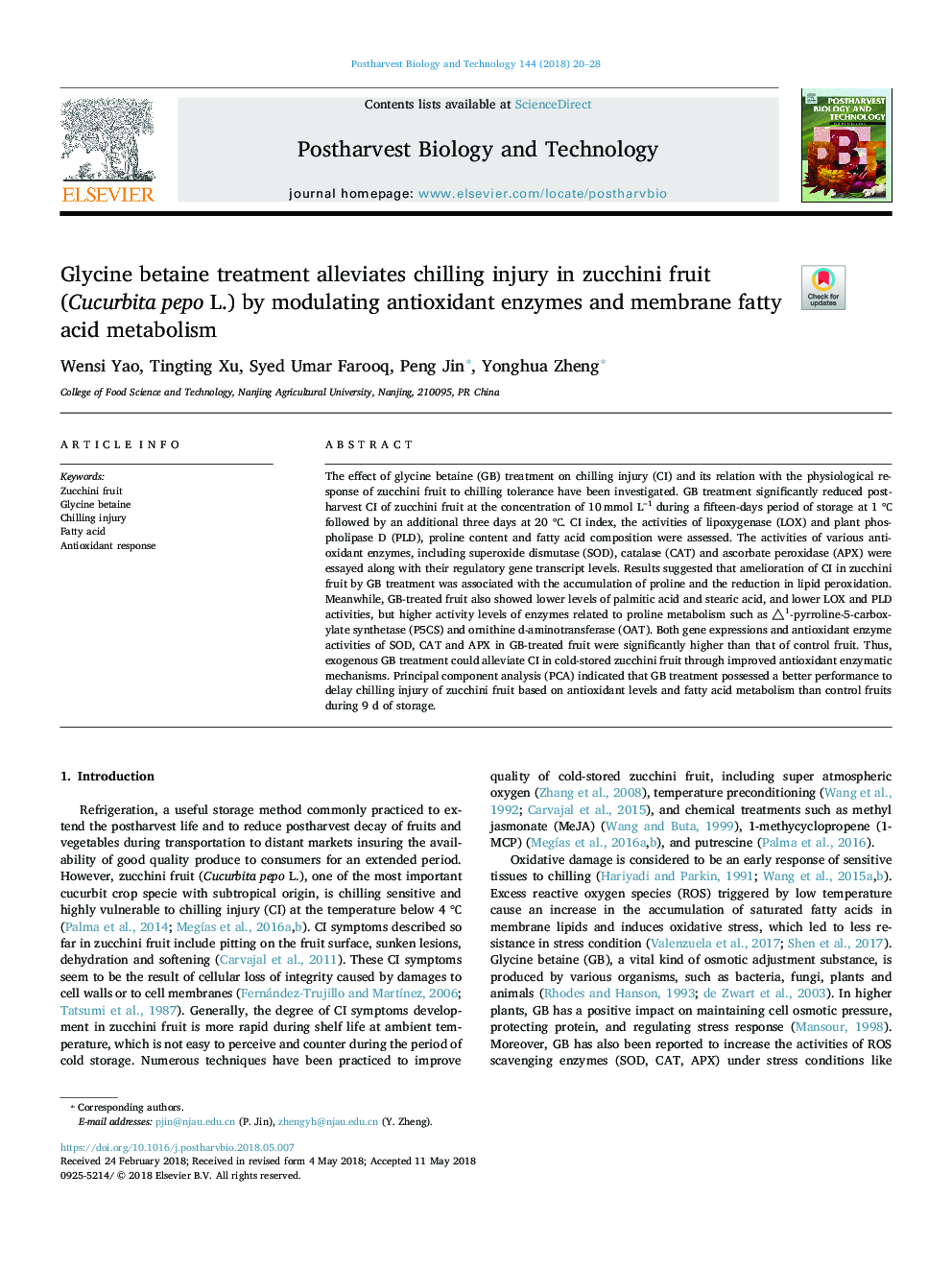| Article ID | Journal | Published Year | Pages | File Type |
|---|---|---|---|---|
| 8881822 | Postharvest Biology and Technology | 2018 | 9 Pages |
Abstract
The effect of glycine betaine (GB) treatment on chilling injury (CI) and its relation with the physiological response of zucchini fruit to chilling tolerance have been investigated. GB treatment significantly reduced postharvest CI of zucchini fruit at the concentration of 10â¯mmol L-1 during a fifteen-days period of storage at 1 â followed by an additional three days at 20 â. CI index, the activities of lipoxygenase (LOX) and plant phospholipase D (PLD), proline content and fatty acid composition were assessed. The activities of various antioxidant enzymes, including superoxide dismutase (SOD), catalase (CAT) and ascorbate peroxidase (APX) were essayed along with their regulatory gene transcript levels. Results suggested that amelioration of CI in zucchini fruit by GB treatment was associated with the accumulation of proline and the reduction in lipid peroxidation. Meanwhile, GB-treated fruit also showed lower levels of palmitic acid and stearic acid, and lower LOX and PLD activities, but higher activity levels of enzymes related to proline metabolism such as â³1-pyrroline-5-carboxylate synthetase (P5CS) and ornithine d-aminotransferase (OAT). Both gene expressions and antioxidant enzyme activities of SOD, CAT and APX in GB-treated fruit were significantly higher than that of control fruit. Thus, exogenous GB treatment could alleviate CI in cold-stored zucchini fruit through improved antioxidant enzymatic mechanisms. Principal component analysis (PCA) indicated that GB treatment possessed a better performance to delay chilling injury of zucchini fruit based on antioxidant levels and fatty acid metabolism than control fruits during 9 d of storage.
Related Topics
Life Sciences
Agricultural and Biological Sciences
Agronomy and Crop Science
Authors
Wensi Yao, Tingting Xu, Syed Umar Farooq, Peng Jin, Yonghua Zheng,
